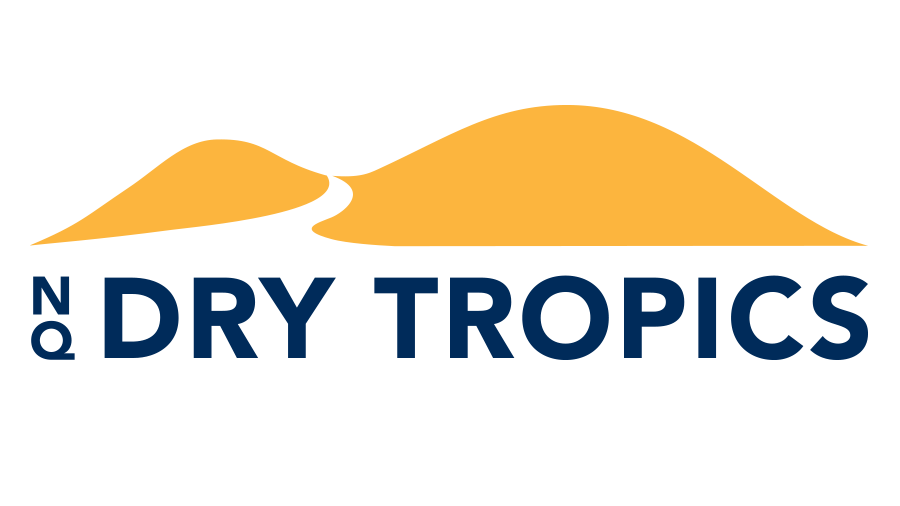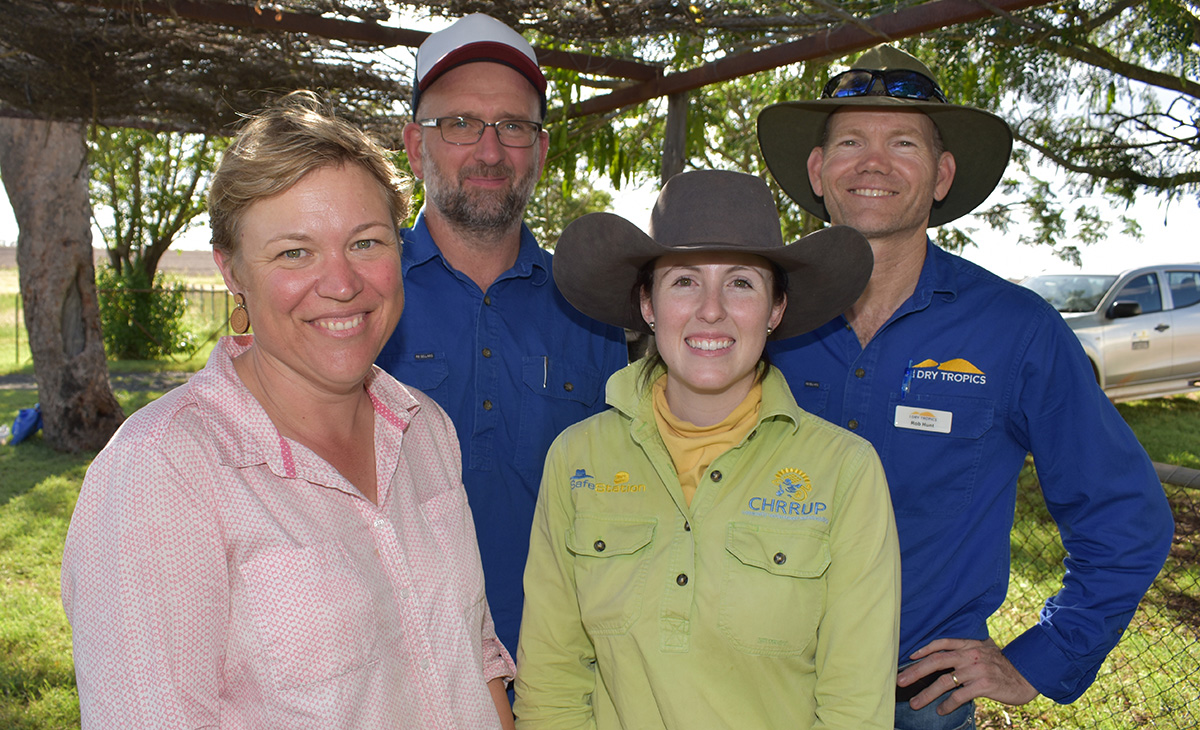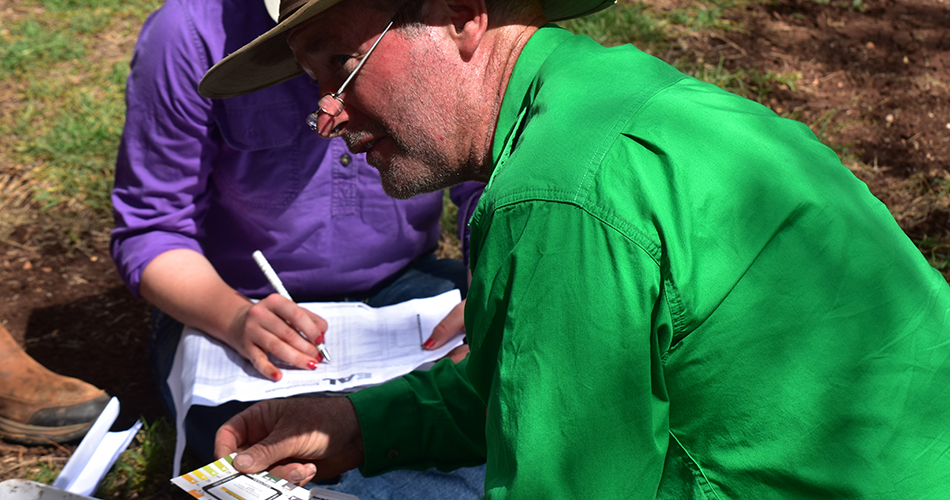At the Building Dynamic Burdekin Grazing Businesses program wrap up event held at Kilcummin Hall is from left, Shontae Moran, Double D Station, David Hardwick, agricultural ecologist of Soil Land Food, Sara Jeppesen, CHRRUP project officer, and Rob Hunt, NQ Dry Tropics Sustainable Agriculture program manager.
Grazing to improve soil health
SOIL is an important asset for every farmer, and Central Queensland graziers now have a greater understanding of soil health and soil-building practices thanks to a six-month soils extension and training program that wrapped up last week.
Landholders representing five properties from Kilcummin, Clermont and Mt Coolon, took part in a NQ Dry Tropics program, which was delivered by project partner Central Highlands Regional Resources Use Planning Cooperative (CHRRUP) .
The Building Dynamic Burdekin Grazing Businesses program was funded by the Australian Government’s National Landcare Program.
Agroecologist and soil management specialist David Hardwick, from Soil Land Food, supported the landholders to learn about soil physical, chemical and biological properties, and how they affect pasture growth.
“Everyone wants their soil to perform better because it’s so important to their farm business,” Mr Hardwick said,
“My role was to help landholders interpret their soil test results and discuss what they can do to improve and manage their soils for the long term to benefit both their landscape and business,” he said.
Grazier Shontae Moran, of Double D Station, 70km north of Kilcummin, said the newfound knowledge meant she and her family could take the next step to adopt management practices to build a holistic, regenerative biodiverse landscape.
“Being able to read soils tests is invaluable, it means we can correlate with our management practices and build it into a broader record keeping process for our property,” Ms Moran said.
“We will continue to do soil analysis and soil monitoring, and grass check sites. We have seven different soil types so fencing to land type is a challenge and not a financially sensible thing to do.
“To now have the capacity to look at what’s going on in the soil and the plants, and how that transfers to our livestock, is going to help us build an overall picture of what changes we need to make to our grazing strategy to improve our landscape, make our soils more stable and productive to boost a sustainable enterprise,” she said.
NQ Dry Tropics Field Sustainable Agriculture program manager Rob Hunt said understanding how local soils functioned was vital.
‘The Building Dynamic Burdekin Grazing Businesses program was designed to help graziers and dryland farmers to better understand their soils and the limitations of those soils but to also understand the opportunities that those soils present,” Mr Hunt said.
“It’s about helping landholders build their resilience so that they can better cope with future threats like drought, climate change, soil acidification and factors that are real risks in this area if they’re not carefully managed.
“It was fantastic to travel to Kilcummin for the project events this week to meet innovative and forward thinking producers,” he said.
David Hardwick demonstrates different soils tests to participants Alice Marks, Winvic Station, Kilcummin, and Stacey Heidenreich and Sara Jeppesen, both of CHRRUP.



